#Religious Teachings
Explore tagged Tumblr posts
Text
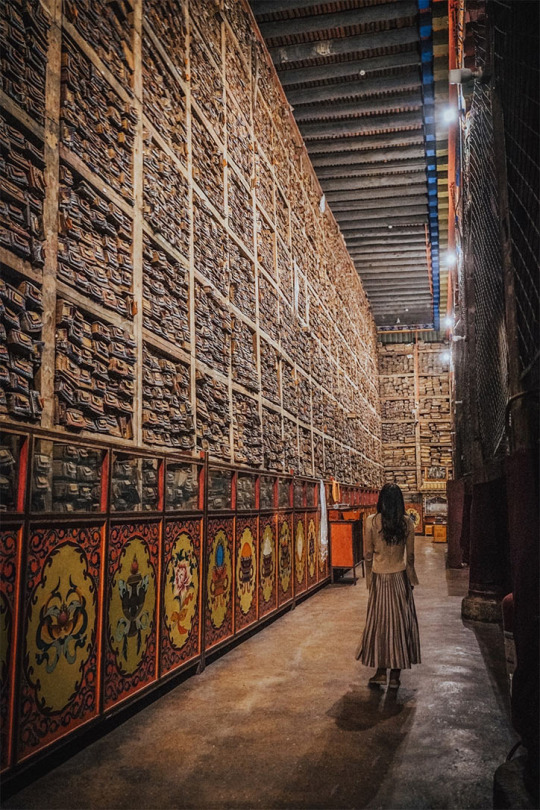

If you are still heart broken about the destruction of the Alexandria library, you will be happy to hear in a far away world, there’s a vast library hidden from the world for centuries, contains 84,000 books, which are planned to be digitised, translated and share with the world.
The Sakya Monastery in Tibet, founded in 1073 by Khon Konchog Gyalpo, is renowned for its vast library of ancient manuscripts, many of which remain untouched for centuries.
Most of these texts are Buddhist scriptures, meticulously handwritten in various languages like Chinese, Tibetan, Mongolian, and Sanskrit. But the depth of this collection is vast. It isn’t limited to religious teachings; it expands into the realms of literature, history, philosophy, the stars above with astronomy, the logic of mathematics, the beauty of art, and even the practical wisdom of agriculture.
The scale of this library is staggering. Picture traditional bookshelves stretching 200 feet and soaring to 33 feet, all packed with a whopping 84,000 books! Among these, there’s a standout: a single scripture that tips the scales at a massive 1,100 pounds, claiming the title of the heaviest in the world. Thanks to the region’s dry climate, the library also boasts a collection of delicate palm-leaf manuscripts, preserved in near-perfect condition.
The library is not open to the general public but is accessible to members and visiting scholars with permission. Efforts are underway to digitize these manuscripts, making them more widely available for research and study. This initiative highlights the library's role as a bridge between ancient wisdom and modern scholarship, offering invaluable insights into Tibetan culture and knowledge.
Now, these precious papers give us a peek into Tibet’s history. They show us how people lived, what they believed, and how they dreamed. Thanks to the Sakya Monastery, a whole world has been brought back to life from long ago. Everyone can learn and be amazed by the wonders of the past.
[Sources]:
*Earthly Mission: Tibet's Great Sakya Library (https://earthlymission.com/tibet-great-sakya-library-84000-scrolls-heaviest-scripture-world/)
*History Enhanced: Unveiling the Unseen (https://historyenhanced.com/unveiling-the-unseen-84000-unread-manuscripts-from-sakya-librarys-timeless-tales-discovered/)
*The Historians: The Secrets of Sakya Monastery Library (https://thehistorians.org/2023/12/24/the_secrets_of_sakya_monastery_library_in_tibet/)


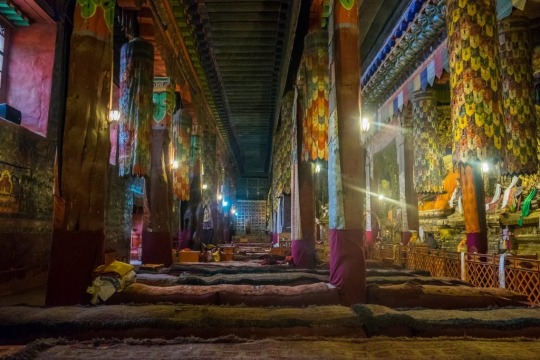
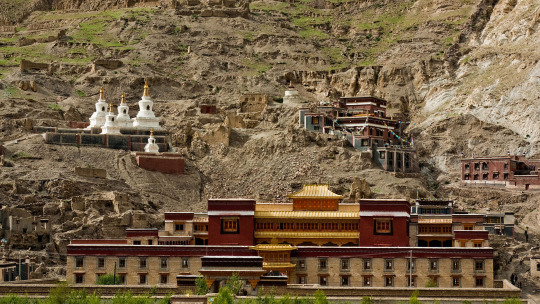
#Tibet#Sakya Monastery#Khon Konchog Gyalpo#Ancient manuscripts#Buddhist scriptures#Mongolian#Sanskrit#Chinese#Tibetan#Religious Teachings#Arts#ancient literature#ancient history#ancient philosophy#astronomy#ancient agriculture#ancient wisdom#ancient library#heaviest book in the world
51 notes
·
View notes
Text
Understanding 3 Nephi 14:21-24: A Call to Authentic Faith
In the pursuit of true discipleship, words alone do not suffice. This timeless truth is powerfully illustrated in 3 Nephi 14:21-24, where actions, not mere proclamations, define our faith.
True Discipleship: Embracing Christ’s Words for Eternal Entry When it comes to true discipleship, 3 Nephi 14:21-24 offers a clear and powerful message: mere words aren’t enough to enter the kingdom of heaven. It’s a poignant reminder that faith and actions must align seamlessly, ensuring that we not only profess our beliefs with our lips but embody them in our daily lives1. In these verses,…
#3 Nephi 14:21-24#Authentic Faith#Bible study#Book of Mormon Study#building faith#Christian Doctrine#Christian Living#discipleship call#Faith and Works#faith in action#faith journey#faith reflection#Gospel Principles#Jesus Christ teachings#lds scripture#live your faith#Mormon beliefs#Mormon Teachings#New Testament parallels#religious faith#religious teachings#scriptural understanding#scripture analysis#seek truth#Spiritual Growth#Spiritual Insights
0 notes
Text
Caravan of Love: The Universal Path of Righteousness Across All Traditions
In the vast tapestry of world religions, certain values transcend cultural and doctrinal differences, weaving together a shared vision of what it means to live a righteous and compassionate life. These values—purity, righteousness, kindness, forgiveness, and compassion—are cornerstones of what many traditions aspire to cultivate in their followers. Whether it’s the Sadhu Dharma in Hinduism, the…
#Buddha#Compassion#divine spark#ethical living#forgiveness#harmony#Interfaith harmony#Interfaith Understanding#Islamic piety#Jesus Christ#loving-kindness#Mensch#moral conduct#moral integrity#peace#purity#religious teachings#righteousness#Sadhu Dharma#Spiritual Awakening#spiritual wisdom#Tzaddikim#unity#universal values#virtue#world religions
0 notes
Text
Is Your Church Secretly Calvinistic? 5 Signs You Need to Know Now!
James 5:19-20: “My brothers and sisters, if one of you should wander from the truth and someone should bring that person back, remember this: Whoever turns a sinner from the error of their way will save them from death and cover over a multitude of sins.”
Wondering if your church might secretly follow Calvinistic beliefs? Calvinism is a set of ideas about how God works with people, especially about who gets saved and how. It can be tricky to spot if a church follows these beliefs because they might not talk about it openly. Here are five signs that your church might be influenced by Calvinism, and we’ll look at what Jesus actually said to help…
#biblical refutation#Calvinism#Calvinist beliefs#Calvinistic church#Christian life#Christian theology#church beliefs#church doctrine#church warning#free will#gospel teachings#irresistible grace#Jesus&039; words#limited atonement#perseverance of the saints#predestination#Protestant work ethic#reformed theology#religious teachings#religious truth#salvation#signs of Calvinism#spiritual discernment#total depravity
1 note
·
View note
Text
In a religious organization in Wilmington, Delaware, lessons from Paul’s letters to the Corinthians hold great significance. Paul’s heartfelt expressions and deep insights within these letters have been a source of inspiration and direction for many years. He addresses the dilemmas and challenges that the Corinthians faced, providing profound messages that resonate equally in our hearts today.
0 notes
Text
youtube
Social Justice and Divine Justice | Exploring the Differences | Woke up
social justice and divine justice are distinct concepts with different focuses. Social justice deals with the pursuit of fairness and equality in human societies, addressing societal issues and inequalities. Divine justice, on the other hand, is a theological concept concerned with how a higher power administers justice, often in the context of religious beliefs and moral order. While they are separate ideas, they may intersect in discussions about morality and ethics in society, as some individuals and groups may view their pursuit of social justice as aligning with their understanding of divine principles or moral duty.
#ethical frameworks#social change#spiritual justice#moral order#social justice#divine justice#social justice and divine justice#explore the differences#woke up#societal inequalities#societal change#human rights#reward and punishment#collective responsibility#socio political perspectives#transcendent justice#human agency#social justice is not justice#society and equality#religious teachings#moral values#divine intervention#Youtube
0 notes
Text

Chapter Two: The Lamb And Her Wolves
The next morning Sera could feel a shift in the air as her fathers land came alive with unfamiliar motion. Engines grumbled low like beasts waking from hibernation ready to consume everything in its path. And the winding dirt road leading to the entrance stirred with heavy wheels and the stomp of boots thick with city dust.
From her bedroom window on the second floor, Sera watched them come. One by one, dark cars rolled in all sleek, glossy, and foreign against the humble backdrop of worn fences and cotton fields. Then came the men; strong, sharp-jawed and some with cigarettes tucked between their gold-ringed fingers. She didn’t understand everyone’s fascination with wearing gold in a flashy manner but she secretly loved seeing the contrast of shiny yellow on melanated skin. Her father called it sinful and bodacious behavior that’s blasphemous towards God. She didn’t question him about it. She never questions him. Instead, she just tucked his words into a memory bank of worldly behavior to avoid if she didn’t want to burn for an eternity.
The men moved like monsters dressed in silk with their tailored coats and shoulders wide with beaming confidence. And at the center of it all stood two identical figures dressed in matching suits, one with red details and one with blue details that cut through the morning light like blades.
Even from this distance, she could feel it… the weight of their presence made her skin prickle beneath her modest yellow sun dress. They stood close to the nearby farmhouse, flanked by hired men who unloaded crates and tools with mechanical precision. The preacher’s north field was being transformed and piece by piece it was shifting into something else. A fortress? Maybe? Or a war room? Possibly?
She pressed her fingers into the windowsill, breath catching as her eyes followed the one who stood still. Smoke barely moved, only nodded every now and then while others worked around him. He had the kind of stillness that didn’t come from peace, but from control. She couldn’t see his eyes from here, but she didn’t need to. She knew they were cold and sharp as he watched everything and missed nothing. When she saw his head slightly turn in the direction of her window she looked away quickly, but not before her heart gave a little thud against her ribs.
Downstairs, the front door slammed and Sera quickly made her way to where she assumed her father would be. Pastor Samuel had returned from meeting with his appointed deacons and the meeting didn’t go as planned. Everyone has been warning him against getting involved with the SmokeStack twins, but he believes they are his only option if he’s going to keep his land and scare the Klan away. With his face taut and unreadable he pulled off his hat before briefly looking over to Sera and letting out a disgruntled sigh. “You’ll stay inside,” he said flatly, without preamble.
Sera looked up from where she stood by the stairway and nervously toyed with the fabric of her dress. “Yes, daddy.” She gave no rebuttal, just blind obedience like how her father taught her.
Even though she didn’t question her father, today was the first day Sera ever saw him seem so… frazzled. Like he knew more than what he wanted to know but didn’t know how to put his thoughts into words. Shifting his eyes away from Sera, Pastor Samuel spotted his Bible on the kitchen table and grabbed it before speaking again. “Don’t go getting any ideas. They’re not here for tea and Sunday songs. They’re here to keep your daddy alive and that church from bein’ burned to ash. You won’t speak to them. You won’t look at them. And you’ll keep to your damn chores, understood?”
Sera nodded, quietly. “I understand.”
He didn’t soften. “They ain’t good men, Seraphim. This is your only warning. Stay away and let them work.”
She offered a final, “Yes, sir,” and turned on her heels as she made her way to the kitchen. Being the only woman in the house she knew it would be her responsibility to feed these men after a long day of work. Her father said not to interact with the men that are turning the land into a combat zone ready for war… But he technically didn’t say anything about not keeping their bellies fed.
The verbal warning from Samuel kept Sera in line while she worked on cooking a hearty meal… but… her fathers warning didn’t stop him. It started with a creak on the back porch. A slow, familiar sound that was typically harmless on most days. But today wasn’t one of those days. Then the screen door pushed open and Sera stiffened at the sound before she even looked up.
Stack stood in the doorway and leaned against the frame like he was posing for a photograph. One hand tucked into his jacket pocket, the other holding a cigarette he hadn’t bothered to light yet. Today his hat was a rich ruby red and he had it tilted back just enough to show all of his face and that grin. That damn grin. Wide, lazy, full of bad intentions and bold promises.
“Well, now,” he drawled, voice slow and syrup-thick, like molasses simmering over fire. “Ain’t you the picture of Southern hospitality? Whatcha cooking little dove?”
The sound of Stacks' voice made Sera turn too quickly causing the hem of her summer dress to catch on her calf as she spun around. While turning, her elbow nearly knocked the pot of greens from the stovetop.
Her mouth parted to speak but initially no sound came out as she swallowed a nervous lump in her throat and tried again. “You… um… You shouldn’t be back here, Mr. Stack. My daddy said I’m not supposed to speak to you.”
The grin on his face faltered for just a second, letting a flicker of something unknown peak through. Regaining his composure, Stack straightened just slightly and tilted his head at her. “Mr. Stack?”
His voice was quieter now. Still teasing, but edged with genuine curiosity. “You sure ‘bout that, sweetheart?”
Sera nodded, both hands wrapped tightly around the wooden spoon she was using to stir her greens like it might keep her grounded.
Stack pushed off the frame and let the screen door softly shut behind him as he stepped fully inside the kitchen. His boots made almost no sound across the worn floorboards. “Well I’ll be damned,” he muttered, more to himself than to her. “You really can tell.”
There was another flicker in his expression. This time it was a flash of disbelief in his eyes as he squinted slightly like he was trying to see straight through her. “We only properly met last night, at dinner,” he said as his iconic smile came back slower and more thoughtful. “Folks we known’ our whole lives still get it wrong. Hell, Stack and Smoke… they say it like it’s one name.”
He let out a breath and a quiet huff of laughter, like he didn’t know what to make of her. “Your daddy tell you which one’s which this mornin’?”
Sera shyly shook her head. “No, sir.” she said, voice barely above a whisper. “I just… knew.”
Not knowing the weight of this revelation, Sera simply stared at Stack with an inquisitive yet cautious expression. Stack said nothing as he blinked once. Then after a few seconds of silence his smirk widened before letting out a low whistle, the sound sliding between his teeth like sin in the dark.
“Well, that’s somethin’, ain’t it?”
He took another step closer. Not threatening. Just… circling. Like a man drawn toward something shiny he didn’t expect to want. “Don’t worry,” he said, lifting his hands in mock surrender. “I ain’t here to cause trouble. Just came for a drink of water… and maybe…” His eyes raked over her, slow and appreciative, lingering far too long. “…a glimpse of heaven while I’m at it.”
Sera’s face flushed instantly and she could feel her ears ringing. She turned too fast again and began fumbling for a glass in the cabinet. But the tremble in her hands betrayed her, no matter how still she tried to be.
Then she felt the air around her become heavy as she heard him shift behind her. Not too close. But close enough. Close enough for the heat of him to find her back. Close enough for her to breathe in the heady mix of cigarette smoke, worn leather, and sandalwood cologne clinging to his skin.
“You always this obedient, pretty girl?” he murmured, voice barely above a whisper now. “Bet you’d let a man do damn near anything if he said please real nice.”
Sera paused her fumbling and scrunched her brows in puzzled expression. “I… I don’t understand what you mean,” she said, her voice so honest and pure it could’ve broken something inside a softer man.
But Stack wasn’t soft. Stack was stone with a smile carved into it and even she managed to make him go quiet. Then he chuckled silently to himself.. Not in a mocking tone towards Sera but more like he’d just been handed a puzzle piece he didn’t know he was missing.
“You really don’t,” he said, almost in awe. “You really… don’t.”
Sera shook her head and wordlessly passed the now filled glass of water back towards him without turning. He took it gently from her hand and made sure his digits brushed against hers.
“I was taught not to entertain wickedness,” she said quietly, like she was reciting it from memory. “Daddy says it creeps in soft. Real sweet-like. But it always leaves stains.”
Stack stared down at the glass of water in his hand but he didn’t bother to drink it. No, right now he was thirsty for something a simple glass of water couldn’t quench. “That why you so stiff right now, pretty girl?” he asked, stepping closer behind her. “’Cause you think I’m wicked?”
He leaned in just enough to let his breath kiss the curve of her neck. “Or is it ‘cause some part of you wonders what wicked tastes like?”
His voice was a combination of dangerous velvety temptation. He let his eyes travel the slope of her back and the tight draw of her waist before biting back a groan. “I’ve tasted it,” he whispered. “And it’s sweeter than a ripe peach on a July morning… but I think you would be sweeter than that.”
Sera froze. Her hands went still against the kitchen counter as the silence wrapped around her shoulders like a heavy shawl. Her eyes stared straight ahead at the sink, unblinking and unfocused with Stack’s words echoing in her ears. A heated riddle laced with something unholy that made her spine prickle. She didn’t understand all of what he meant—not fully. Not with her mind, anyway. But her body… her body heard him loud and clear.
There was something about the way he spoke. The tone of his voice, the bite behind it and the promise that lingered. The air around her suddenly felt heavier and warmer, as if his words had turned to steam and crawled beneath her dress.
Then suddenly an unfamiliar tension coiled low in her belly. Not pain. Not fear. But something that made her thighs press closer together on instinct. And then she felt it. A second heartbeat. Not in her chest where it should be, but pulsing gently and rhythmically between her thighs. It was soft at first but as the seconds ticked by it grew to a loud drumming and her brows furrowed. She didn’t waste any water on herself, it wasn’t time for her monthly, and she definitely didn’t pee on herself.
She was wet.
Not soaked, but wet enough to make her shift uncomfortably. Enough for a warm drip to settle into the cotton of her panties as her cheeks burned with shame. And instead of trying to rationalize what she was feeling, Sera cleared her throat and gently shook her head.
Maybe it’s nothing, she told herself. Maybe I just need to drink a little tea and pray it away.
Yes. That’s what she’d do. She would drink something calming like Chamomile or maybe her grandmother’s old lemon balm blend. A hot cup of tea and a hot bath. That’s what good girls do. That’s what church girls do. That’s what she would do.
Before Stack could say more, she was saved only by the shift of a shadow lingering behind them.
Smoke stepped onto the porch, still as stone and Stack turned at once, glass still in hand and an expression like a kid that almost got caught stealing candy by their father. “She was just givin’ me some water,” Stack said easily.
Smoke said nothing. His eyes didn’t go to his brother. They went to her. And Sera slightly tilted her head to meet his gaze just for a breath. It held her in place like a hand at her throat. He didn’t smile. Didn’t blink. His stare was unreadable, but it wasn’t cruel. It was curious. Like he was trying to figure her out. A woman so tightly wound in rules, yet soft as sin beneath it all.
He looked away just as quickly and turned without a word before vanishing back down the steps. Stack lingered for a moment longer, the tension between them thick and intimate. Then he tipped his hat. “Thanks for the drink, sweetheart. Don’t let ya Daddy’s rules keep you from livin’.” And just like that, he was gone too.
When he finally left, Sera stood alone in the kitchen with her heart pounding and hands shaking. She didn’t know what they wanted from her. But something about their presence excited her and deep down, under the linen and Bible verses, a small part of her wondered what it would feel like to stop being good. Just once.

Smoke stood alone at the edge of the north field, one boot resting on a stump as he lit a cigarette, slow and steady. He watched his men work without needing to say much since his presence did the talking. All around him hammers struck wood, metal scraped against metal, and the morning air filled with the scent of pine shavings, dirt, and the quiet tension of men preparing for war.
Behind him he could hear footsteps crunch over the dry grass and he didn’t need to look to know it was his other half. Stack walked up with that same rolling gait, loose shoulders, cocky stride, and a grin that hadn’t faded since he left the kitchen. But there was a slight shift in how he walked. A restlessness and a subtle discomfort.
Smoke didn’t bother to turn around. “You took too long to get a fuckin’ glass of water. We came here to work.” he said, his voice gravel-dry.
Stack huffed a laugh and came to stand beside his twin. “It was a realllll tall glass.” He leaned forward, bracing his hands on his thighs briefly before adjusting himself through the fabric of his slacks with a wince and a satisfied sigh. “Damn,” he muttered, almost to himself. “Didn’t think a girl that sweet could make me this hard just by blushin’.”
Smoke exhaled a slow curl of smoke through his nose. “She’s the preacher’s daughter,” he said flatly.
Stack chuckled and looked out onto the field with his brother and sighed, long and dramatic. “So serious already. You sure you ain’t still wound up from last night?”
Smoke’s eyes narrowed. “What’re you talkin’ about?”
“You know what I’m talkin’ about! That little redhead preacher girl,” Stack grinned, and elbowed him with a smirk. “You ain’t even touch your chicken, and you damn near crushed your glass just watchin’ her scrape plates last night.”
Smoke’s voice was low and sharp. He wasn’t in the mood to discuss his feelings and he definitely didn’t feel like discussing them with Stack. “Drop it.”
But Stack wasn’t done. Not by a long shot. “C’mon,” he drawled. “You really gonna act like you didn’t get stiff just sittin’ at that table last night?”
Smoke turned his head, slow as a hinge rusted with tension. “Don’t start with me.”
“Don’t start?” Stack scoffed. “Nigga, YOU started it. Stared her down like she was already on her knees beggin’ for mercy.”
“She’s a child.”
“She’s twenty-five and a grown ass woman.”
“She’s naïve,” Smoke snapped. “Doesn’t know what men like us are.”
Stack snatched the cigarette away from Smoke's hand and walked away from his brother before leaning against a nearby fence post while flicking ash to the ground and grinning like he’d won a round in a fight they hadn’t even agreed to have. “Maybe that’s what’s so tempting about her.”
Smoke said nothing. He looked back toward the house, where the white curtains fluttered faintly behind the kitchen window.
Stack followed his gaze.
“She was shakin’,” he said quietly, like a confession. “Not ‘cause she was scared. I said a few words and she turned red all the way down to her collarbone. Like she didn’t even know her body could react like that. Can you believe that? Her pretty chocolate ass turned red like a damn tomato.” He paused for a second while biting down on his bottom lip. “I wonder where else she turns red…”
Smoke’s nostrils flared. “That’s exactly why you need to leave her be.”
“You jealous?” Stack’s grin sharpened.
“Careful,” Smoke warned.
Stack gave a lazy shrug, unbothered. “I ain’t touched her… Yet. Just asked her a question.”
Smoke didn’t speak, but the tension in his shoulders said more than words.
Stack smirked wider, then stepped in front of him, real close now, so their eyes locked like gun barrels.
“She got under your skin too, Smoke. Don’t act like she didn’t. You think I ain’t notice how you lit a cigarette the second we stepped outside that house last night? And how you needed to ‘take a piss’ foe’ heading back home? What kind of peein’ you doing that take 15 minutes?”
Smoke’s jaw ticked. He had heard enough and didn’t need Stack pointing the truth out to him. “I said drop it.”
“She’s soft,” Stack said, voice lower now, his grin fading into something more dangerous. “Like nothin’ we’ve seen before. You saw her. No rough edges. No lies in her smile. And you—” he poked a finger into Smoke’s muscled chest, “Nigga, you think you’re above wantin’ that?”
Smoke grabbed his baby brother's wrist, hard, but Stack didn’t flinch. He just held that stare full of teeth and defiance.
“I’m not gonna let you ruin her,” Smoke said, voice low and deadly. “She’s not some speakeasy girl you can laugh with and forget by morning.”
“I ain’t forgettin’ her,” Stack said quietly. “That’s the problem.” His devious smirk grew wider as he playfully let his eyes wander down to his slacks and then back up to his twin's serious expression. Smoke held his brother’s wrist a second longer before letting it go, shoving him back just enough to make Stack stumble a half-step.
Stack didn’t retaliate. Just adjusted himself again, another sly grin tugging at the corner of his lips as he muttered, “She makes it hard for a man to walk straight, that’s all I’m sayin’.” He turned away, but his voice floated back like smoke in the breeze. “Tell yourself whatever you need to, Smoke. Just remember this ain’t the kind of girl either of us forgets.”
Smoke said nothing. But as his eyes drifted back to the window where the curtain fluttered again he caught just a glimpse of brown skin, a yellow dress, and gentle movement… and he knew Stack was right. They were both caught.
And neither of them had any goddamn clue how to set themselves free.

The fading sun was starting to bleed across the treetops, painting everything in a golden hue. The muggy air still clung to everyone’s skin, heavy with the scent of churned earth, engine smoke, and hot oil. But now it was overlaid with something richer, something holy: roasted pork, cornbread fresh from the oven, and collards swimming in smoked pork fat.
Dinner tonight was being served on the long porch that wrapped around the back of the preacher’s house. Men who’d worked themselves raw all day from hammering fences, rigging traps and guarding the land with rifles slung across their backs were now lined shoulder to shoulder on picnic benches while waiting with heavy boots and hungrier eyes.
Sera moved among them like a soft breeze through swamp reeds. Quiet, graceful, and oblivious to everything except the task of servitude. She carried a heavy bowl of fresh cornbread to the table and the weight of it made her arms tremble slightly. Her yellow dress had been ruined earlier, stained with oil and butter so she’d changed into the only clean one she had left.
A white cotton-thin dress that was still a little damp when she slipped it on. Sera hadn’t realized it clung until the resting sun hit it. And she definitely didn’t notice how the dress curved over her hips, hugged the round of her thighs, or stretched just enough across her chest to outline what no man had yet touched.
To her, it was just a modest, unwrinkled, and high-necked dress that any obedient church girl would wear. To the men on the porch, it was heavenly temptation. Their conversation thinned to silence when she stepped outside with the bowl. One man muttered something under his breath. Another chuckled. Then one of them leaned forward and whispered just loud enough for the others to hear, “Lord have mercy… if that ain’t a slice of heaven—”
He never got to finish that sentence.
Smoke was on him in a heartbeat, moving so fast the bench scraped across the wood as the other men flinched back. The high roller’s gun swiftly knocked against the man’s nose with little to no effort causing it to bleed. “You think you can say that about her?” Smoke growled, low and venomous. “You open your mouth about her again, and I’ll sew it shut with piano wire. You understand me, nigga?”
The man sputtered, wide-eyed. “I—I didn’t mean—”
“You did,” Smoke snapped. “And you’ll regret it.”
Not even five seconds later, Stack was already checking the rest of the porch. His hands were in his pockets, but there was no mistaking the threat in his mischievous smile. He leaned in close to another worker, whispering like a devil on a man’s shoulder. “You want to keep those pretty fingers, don’t ever look at her like that again. You’re here to build fences and fight the klan, not catch feelings.”
Sera, meanwhile, was too focused on not spilling the food to notice any of it. She was humming a hymn from last Sunday service. Her voice was so soft it barely rose above the hum of insects in the trees. She set down the last dish with a content little sigh, brushing flour from her cheek with the back of her hand. “Y’all eat now,” she said kindly, eyes lowered in modest warmth. “I made plenty.”
Stack watched her like she was something sacred draped in cotton, some creature no one deserved to touch. His smile fell into something almost reverent.
Then—
“Seraphim.” Pastor Samuel’s voice cracked like a whip through the air. Sera was startled by the sound of her fathers voice and wondered what she did wrong to be on the receiving end of his anger tonight.
“What are you wearin’?” he demanded, his voice booming through the still evening.
Her hands went to the bottom of her dress instinctively as she started trying to smooth out unseen wrinkles. “It’s just my white dress, Daddy. My yellow one got dirty—”
“You look naked!” he spat. “What man you tryin’ to tempt lookin’ like that?”
“I—I didn’t mean—”
He stormed up, pointing toward the back door to the house. “Go inside and cover yourself up. Now! I won’t have my daughter paradin’ around like some alley girl while men sit down to eat in my home.”
Sera’s cheeks flushed hot. “I didn’t know—I wasn’t—”
“Now, Seraphim.”
She bowed her head and hurried back inside without another word before anyone could see the tears spilling from her eyes.
Silence filled the air and then Stack’s voice, calm and sharp as a butcher knife cut through the tension, “You ever talk to her like that again in front of me… preacher or not… I’ll knock your goddamn teeth down your throat.”
Pastor Samuel’s spine stiffened as he whipped his head around to glare at Stack. “You best watch your tone, boy.”
“I ain’t your boy,” Stack said, smiling without warmth. “And she sure as hell ain’t your property.”
Smoke didn’t speak, but his eyes hadn’t moved from the door. This battle wasn’t just about land anymore. It was about her. And God help anyone who stepped out of line when it came to her.
.
.
.
.
.
.
Tag list:
@nahimjustfeelingit-writes @theethighpriestess @imagining-greatness @hearteyes-for-killmonger @blackpantherismyish @theogbadbitch @queenofklonnie22 @underated345-blog @bxrbie1 @harleycativy @hermyowney @kcundercover0
#sinners#sinners fic#sinners fanfiction#smoke fanfic#smoke fic#smoke x oc#stack fanfic#stack fic#stack x oc#smoke stack twins#smoke x stack x oc#smoke and stack#sinners smut#smoke smut#stack smut#religion#religious trauma#I hate Pastor Samuel#Can’t wait to [redacted] him#Me personally I would’ve risked it all for Stack in that kitchen#SOS someone teach Sera how to flick the bean before she combusts
291 notes
·
View notes
Text
The Universal Gesture of the Raised Right Hand
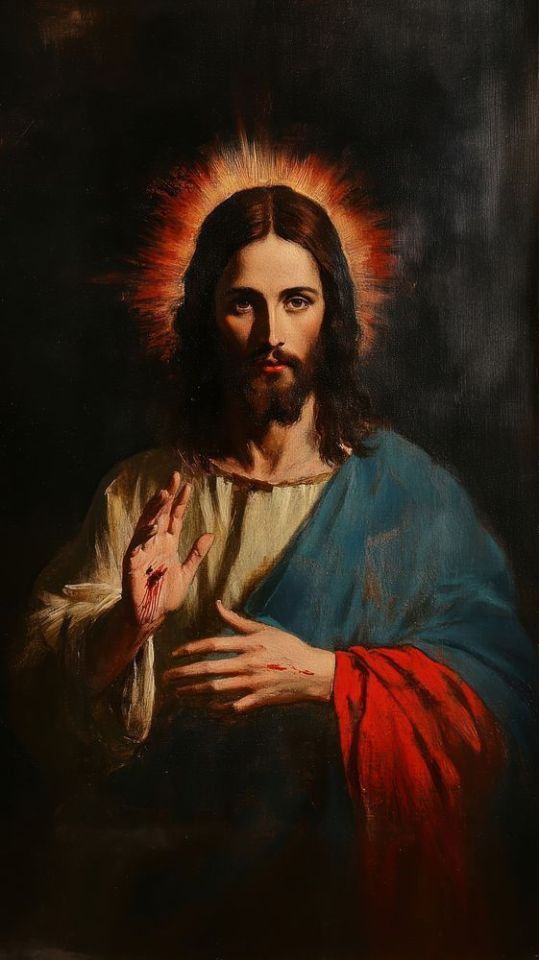
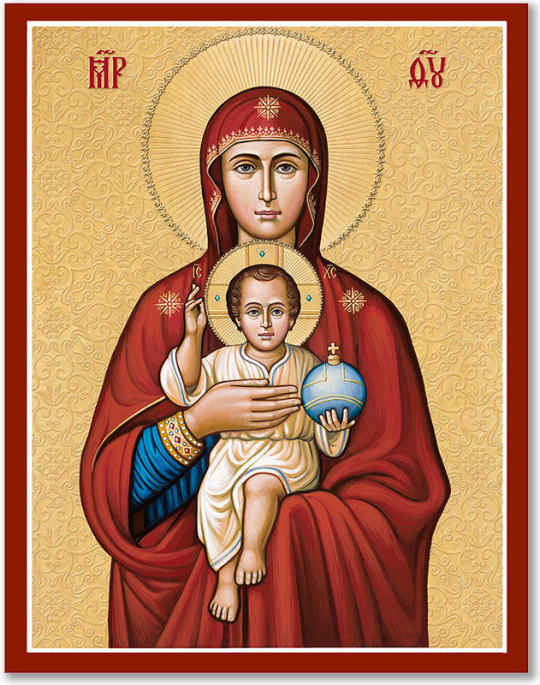
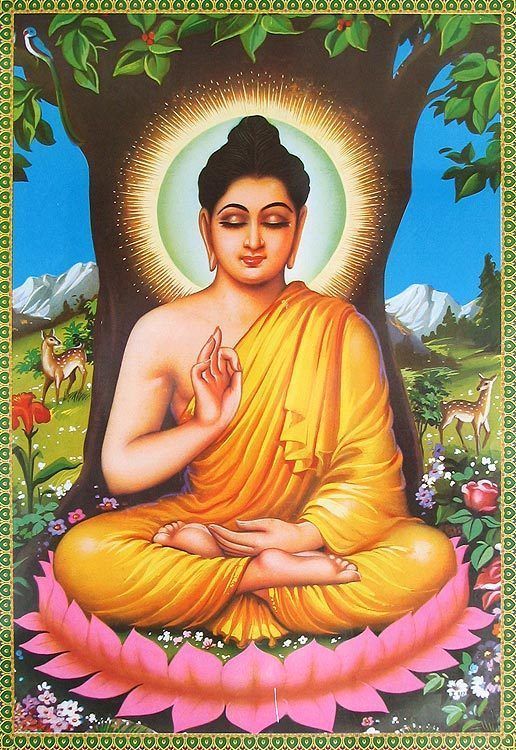
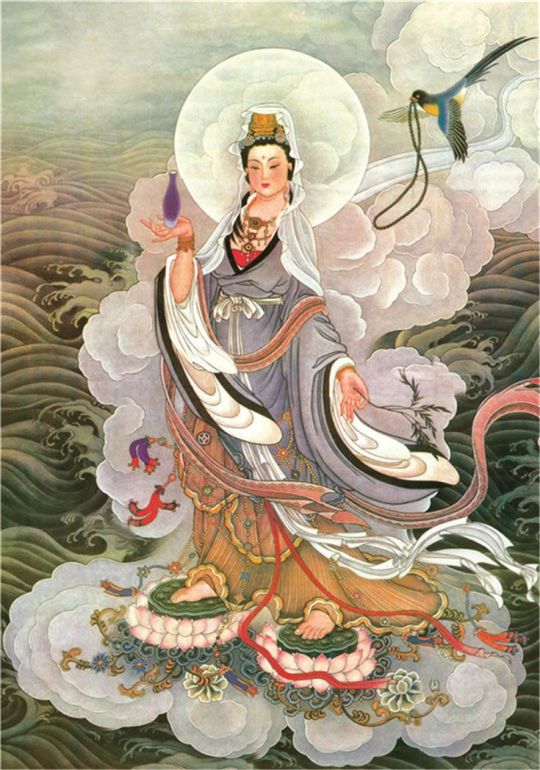
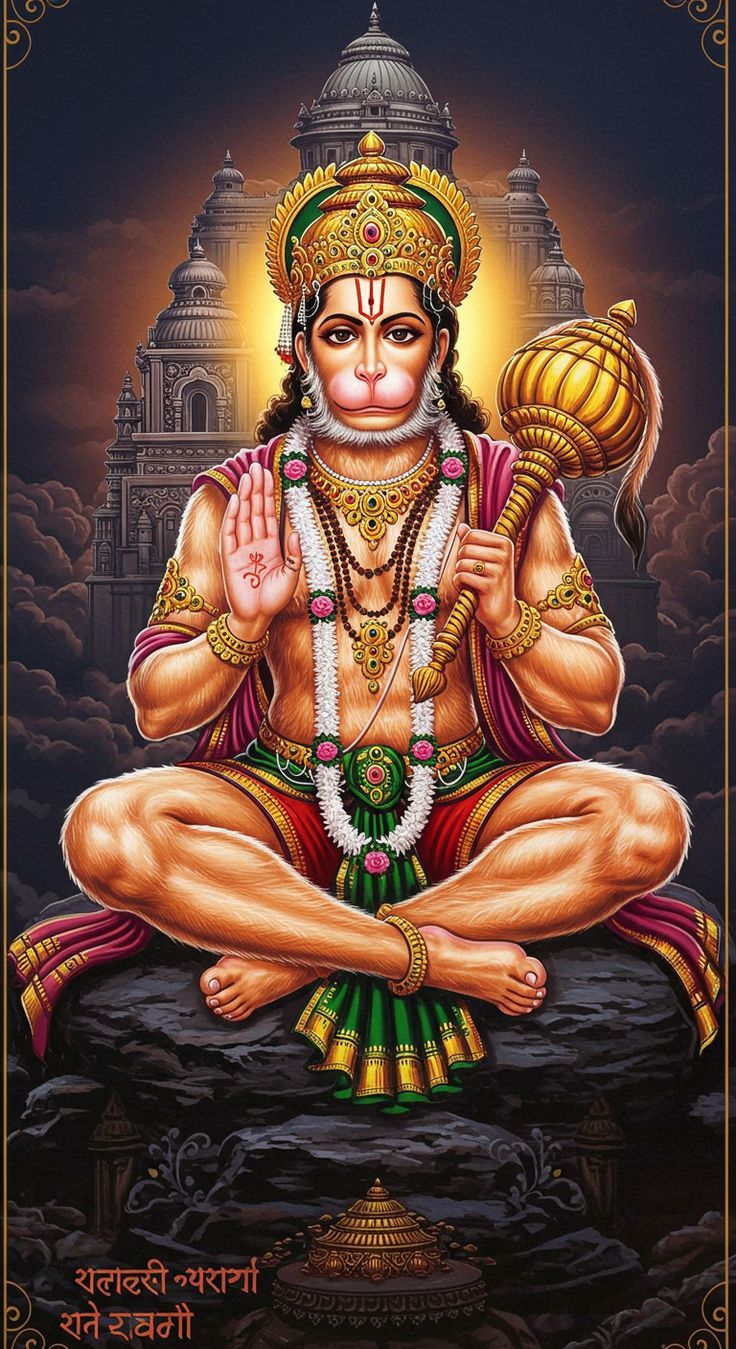
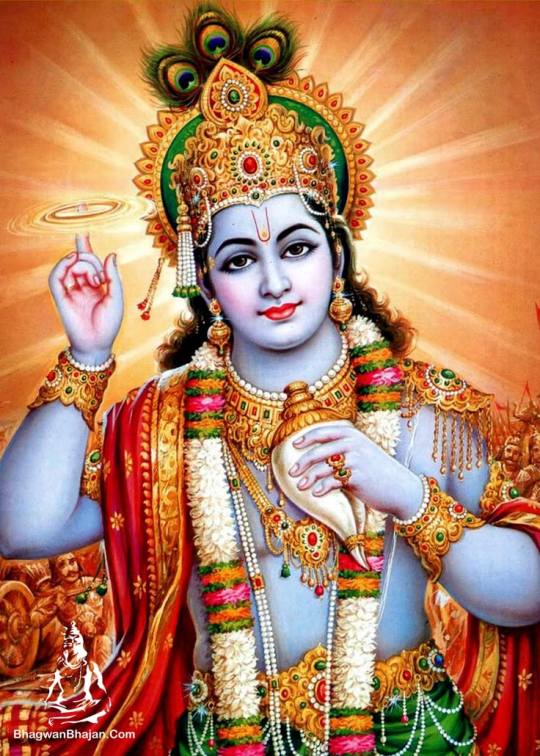
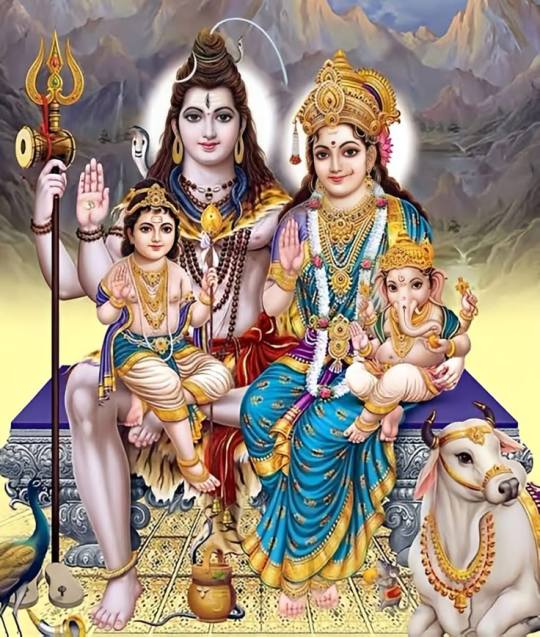
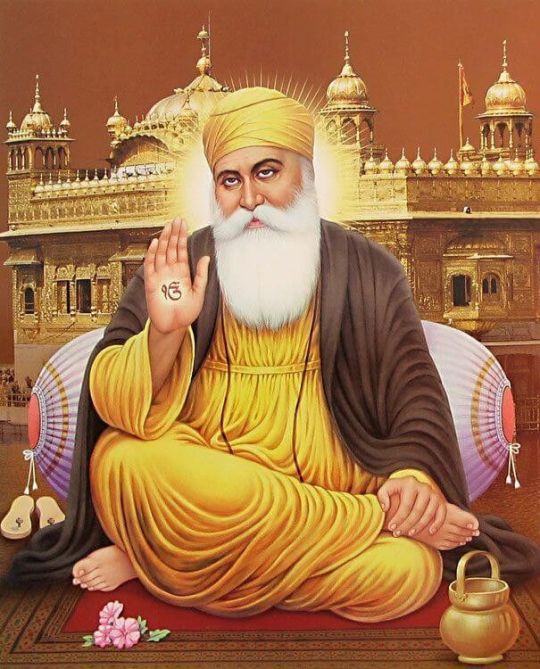
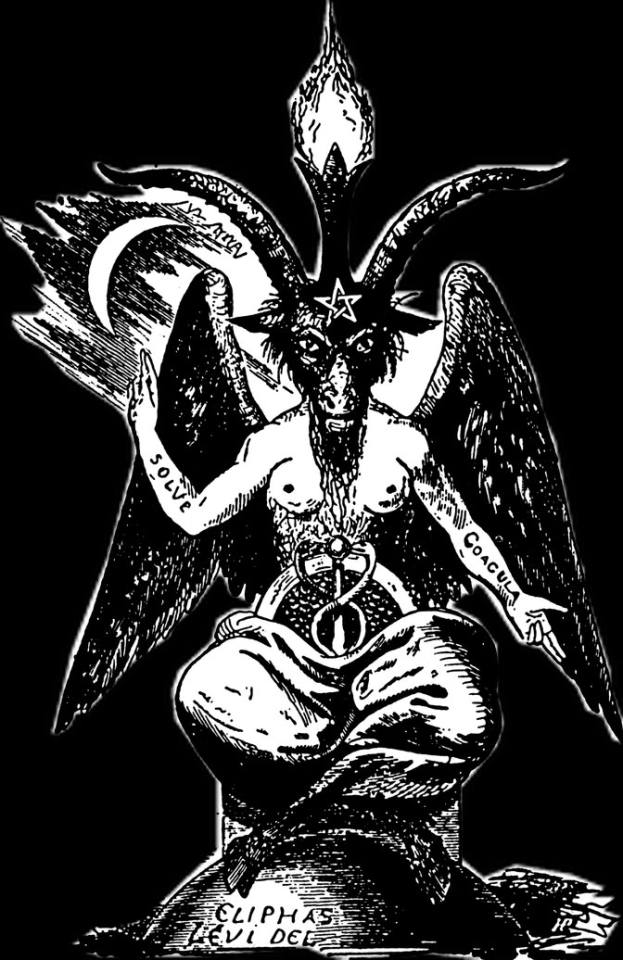
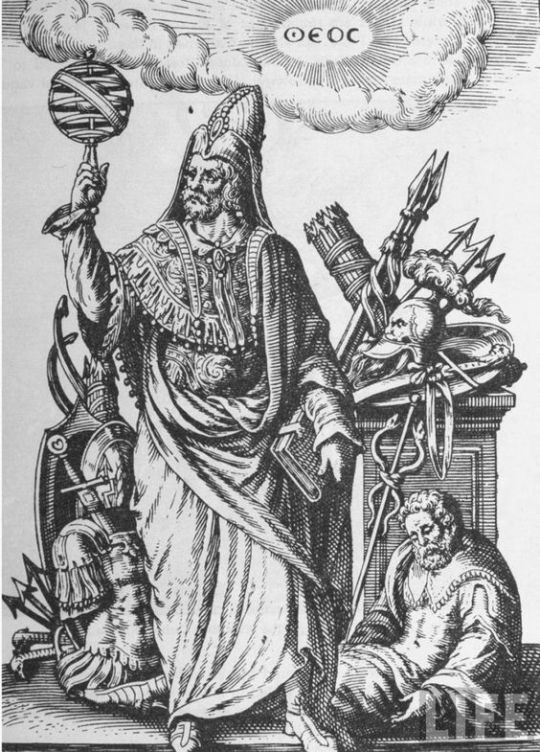
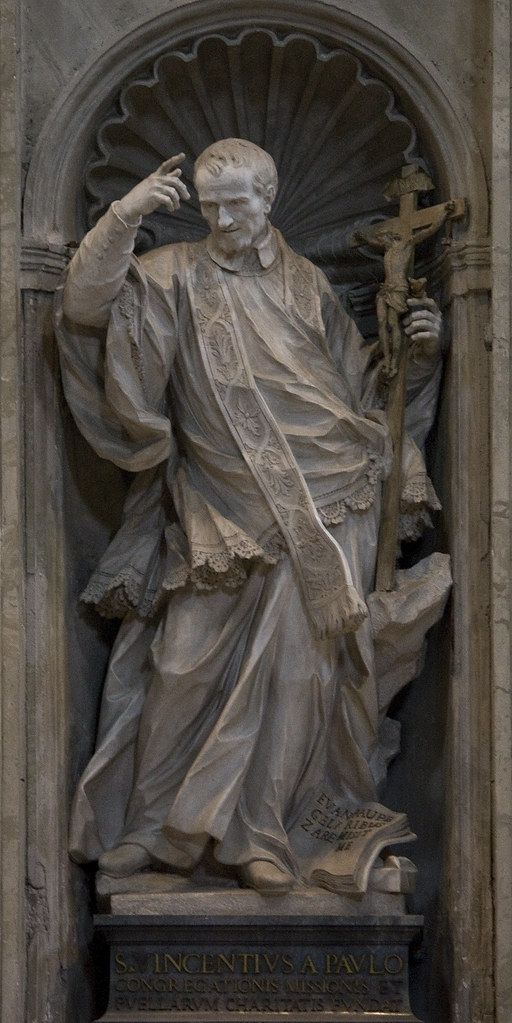
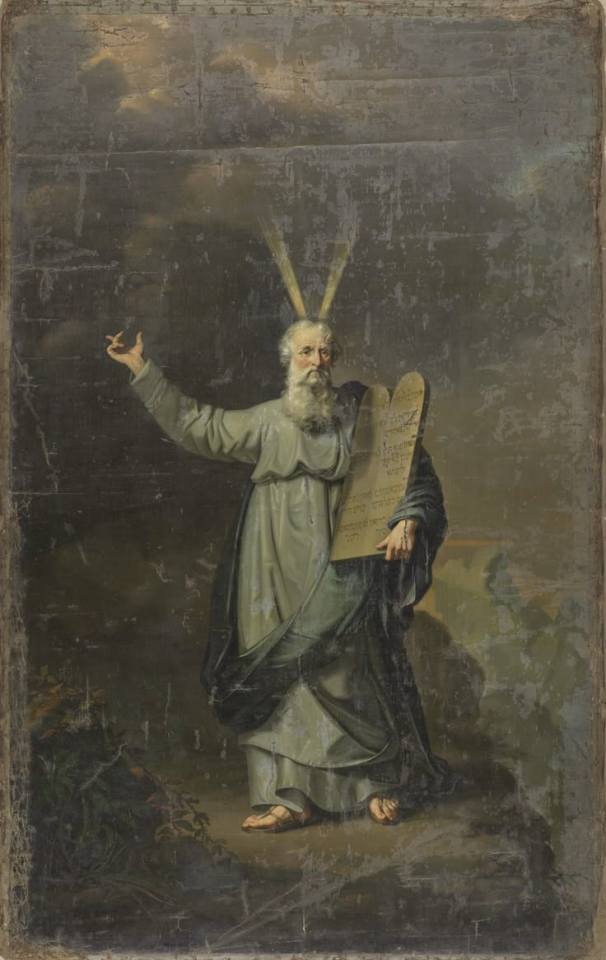
The raised right hand, a gesture seen across various religions, spiritual traditions, and artistic depictions, carries with it profound symbolic meaning. This ubiquitous gesture is often linked to themes of blessing, protection, authority, and enlightenment, and has been shown in the iconography of deities, spiritual leaders, and mystics for millennia. Its recurrence suggests it is more than just a physical movement; it embodies a universal archetype that is deeply ingrained in human consciousness. Through examining the gesture's origins, symbolism, and often suppressed meanings, we can gain profound insights into its role as a bridge between the material and the divine.
Core Symbolism Across Traditions
At its core, the raised right hand symbolizes reassurance and spiritual power. Across different traditions, it conveys a sense of divine protection, authority, and the dispelling of fear. In Hinduism and Buddhism, this gesture is epitomized in the Abhaya Mudra, which translates to “gesture of fearlessness.” The Buddha, often depicted with his right hand raised to shoulder height, palm outward, uses this gesture as a symbol of peace and protection, calming the fears of the devotee. Similarly, Hindu deities like Vishnu and Shiva adopt this mudra to bestow blessings and offer divine assurance.
Christian and Cross-Cultural Depictions
In Christianity, the gesture is closely associated with Jesus Christ, who is frequently depicted raising his right hand in a benediction, signifying the transmission of divine grace and spiritual power. Mary, too, is shown in similar contexts, her hand raised in a gesture of blessing. The raised right hand also carries significance in Sikhism, where Guru Nanak's gesture symbolizes divine truth and guidance. Even in occult traditions, figures such as Baphomet incorporate this gesture to represent the balance between the spiritual and material realms, echoing the principle of "as above, so below." The universality of this gesture underscores its association with spiritual authority across various cultures.
Esoteric Meaning and the Right-Hand Path
Beyond its religious and spiritual meanings, the raised right hand also has esoteric significance. It is often seen as a symbol of the "Right-Hand Path," a concept tied to righteousness, divine order, and enlightenment. This contrasts with the "Left-Hand Path," which is often associated with hidden knowledge or rebellion against established norms. This duality—light versus dark, order versus chaos—encapsulates humanity’s ongoing journey to balance material existence with spiritual transcendence.
Prehistoric and Ancient Origins
The origins of this sacred gesture stretch far back into prehistory. Before the advent of organized religion, prehistoric shamans—spiritual leaders adept at navigating altered states of consciousness—likely used the raised right hand as a nonverbal form of communication with higher realms. Cave paintings dating back over 30,000 years show figures with raised hands, suggesting a deep, intuitive connection between this posture and spiritual invocation. As civilizations emerged, this gesture became more formalized within religious and ceremonial contexts.
In ancient Sumer (around 4000 BCE), gods and rulers were often depicted with raised hands, invoking divine authority. Similarly, in ancient Egypt, deities like Osiris and Isis are frequently shown with their hands raised during sacred rituals. The Indus Valley Civilization (circa 2500 BCE) integrated mudras, symbolic hand gestures, into their early yogic practices. The Vedic texts (circa 1500 BCE) codified these hand gestures within Hindu rituals, associating them with the control of energy and blessings. Buddhism later adopted the Abhaya Mudra, as exemplified by the Buddha, who used it to calm a charging elephant sent by his cousin Devadatta, symbolizing serene power and protection.
An Archetype Across Cultures
Despite regional differences, the raised right hand has consistently symbolized divine connection across cultures. Its prevalence suggests an archetypal truth embedded in the collective human consciousness, one that spans time and geographical boundaries.
Esotericism and the Mystical Hand
In esoteric traditions such as Freemasonry and Hermeticism, the raised right hand goes beyond a simple gesture of blessing. It symbolizes the oath of initiation into higher knowledge, invoking cosmic truths that transcend ordinary understanding. The human hand itself is often viewed as a microcosm of divine creation, with its five fingers corresponding to the pentagram—a symbol of balance—and the five elements: earth, water, fire, air, and spirit. Ancient cultures believed that certain hand positions could channel energy flows within the body or invoke universal forces, further amplifying the significance of the raised right hand.
Duality and Balance in Symbolism
The duality inherent in this gesture reflects broader cosmic principles. The right hand is often associated with light, order, and divine authority, while the left hand is linked to chaos, hidden knowledge, or rebellion. This contrast is vividly illustrated in occult symbolism through figures like Baphomet, who is depicted with one hand pointing upward, toward the heavens, and the other pointing downward, toward the earth. Baphomet embodies the balance between opposites, serving as a reminder that spiritual enlightenment requires the reconciliation of dual forces.
Suppression of Esoteric Knowledge
Yet, beneath these surface meanings lies a deeper layer of significance, one that has often been suppressed or reinterpreted throughout history. Many cultures embraced the raised right hand as a sacred symbol, but its more esoteric meanings have often been obscured by religious institutions seeking to control spiritual knowledge. The myths surrounding pre-flood civilizations—such as Atlantis—speak of societies that possessed profound knowledge of sacred geometry, cosmic cycles, and spiritual science. This knowledge was likely lost or deliberately erased after catastrophic events reshaped human history.
Early Christianity, too, contained mystical teachings that were later suppressed by institutionalized religion. Gnostic texts describe Jesus as a teacher of self-mastery, rather than blind submission to external authority. Concepts such as reincarnation, which were central to early Christian thought, were removed from doctrine during Church councils. Similarly, the role of Mary Magdalene as an equal spiritual leader was diminished to reinforce patriarchal structures. These omissions serve to obscure Christianity's esoteric roots, favoring dogma over personal enlightenment.
Sound, Frequency, and Vibrational Truths
In addition to these religious suppressions, the science of sound and frequency also holds a key to understanding the deeper significance of the raised right hand. Ancient civilizations understood that sound shapes reality, a concept encoded in sacred languages like Sanskrit and Hebrew. The standard tuning of modern music (440 Hz) contrasts with ancient systems such as 432 Hz tuning, which is believed to harmonize with natural frequencies. This shift may represent a deliberate attempt to disrupt humanity's connection to higher vibrations, further distancing the masses from their spiritual potential.
The Moon and Frequency Control Theories
Some esoteric traditions even suggest that the Moon, with its perfect size for eclipses, may have been artificially placed in Earth's orbit as part of a control mechanism for human consciousness. Its presence raises questions about its origins and whether it serves as a frequency regulator, locking humanity into specific vibrational states.
Ultimately, the raised right hand represents more than just a symbolic gesture; it embodies humanity's shared spiritual heritage. Its presence across cultures suggests that it encodes universal truths about enlightenment: mastery over physical reality through alignment with cosmic laws, protection from ignorance, and guidance toward higher planes of existence. Yet, much of its deeper meaning remains hidden beneath layers of historical suppression and reinterpretation. By rediscovering these lost meanings—whether through ancient texts or modern esotericism—we can begin unlocking humanity's full potential for spiritual awakening.
The raised right hand, as a timeless and powerful gesture, continues to beckon us toward greater understanding and unity with the divine. It is a symbol that transcends time and culture, offering us an ancient key to uncovering the profound mysteries of the universe. Through it, we are reminded of our intrinsic connection to higher wisdom and the eternal quest for spiritual enlightenment.
#symbolism#iconography#sacred iconography#sacred symbols#mystical#mysticism#divine authority#mythical christianity#esoteric christianity#esoteric#occultism#occult#occult symbols#tradition#mudras#buddhism#buddhist#vedic wisdom#vedic#spiritual#spiritual protection#sacred geometry#hermetic#transcendentalism#gnosticism#gnostic teachings#gnosis#religious art#art history#mind over matter
119 notes
·
View notes
Text
So a thought has been kicking around my head for a bit...what if Helio knew exactly what he was signing up for by making Kristen his chosen one?
It has always struck me as odd that when describing Doreen in Helioic heaven, Brennan mentioned her flirting with men and women. It also strikes me as odd that Kristen never got any pushback from Helio about turning her back on him. Even if he was similarly 'out of the picture' like sol was while Arthur was wrecking havoc, Kristen's powers should have faded when she fully committed to not worshipping him. You need to worship a god to get powers, and this is emphasized heavily in the latest episode. Kristen worshipping the vague idea of religion but Definitely Not Helio just doesn't cut it. Sure, taking away a PCs powers wasn't really in the cards in season one, but Brennan works very well and very caringly with what he has to establish as canon.
Kristen was looking for a reason to drop Helio from the get-go. His frat boy appearance and non-answer to a nearly impossible question didn't truly matter at the core of her feelings. She wanted an out from the prison she was trapped in with the Helioic faith, even if she didn't realize it fully. She had tension with her mom and her ideals from the scene one! She wanted to connect with people the church actively shunned. Helio was never the true problem.
Now, gods are shaped by their worshippers. So on some level Helio is shaped by people with shitty ideals. But there's still a foothold of good, especially if there are out and proud gays in heaven. Especially if Kristen Applebees of all people is the chosen one.
When you have worshippers misinterpreting your whole deal, going with Sol's shitty messaging and transferring it onto you and using it for bad things, what can you do as a god? Because you ARE what they say you are. So how can you fight back?
Well. You make your chosen one someone that embodies your true heart. Someone that can actually turn the tides of your worship.
There is an emphasis on tracker reinventing and revitalizing her religion. Changing it for the better. Taking the old and not tossing it out, but making it better.
Isn't that what Kristen struggles with the most? That's what she needs to learn how to do.
Tracker also established that she can worship multiple gods when she helped with Yes?. Kristen doesn't need to settle for one even if she (fingers crossed) brings Kassandra back.
Because the season opened with the slow apocalypse of endless night. Endless daytime would end similarly. There has to be a balance. They are two sides of the same coin. Day and night. The surety of the sun and the doubt of the shadows.
Kristen wants both. And she can fucking have it if she decides to.
Ally once said they appreciate that the enemy is always the church. Organized religion. Kristen is perfect for disorganized religion though. Chill frat boy vibes and anxious doubts and the ultimate message of 'just do your best'.
I think religious trauma is a compelling, close to the heart topic for a lot of people. And some turn away from religion entirely and wash their hands of it. But some people don't. Kristen is a cleric. She can't. She wants a god, she wants answers, and she just can't find them in the established community she was raised in. That doesn't mean the core of her religion was wrong. The church was. So you take the religion and you harness it in a way that means something to you.
Maybe Kristen being desperate enough to invite Helio back into her life is what this has all been leading to.
She can remake a god. She's done it before. Because Kassandra was good at the core. Maybe Helio can be too.
#dimension 20#kristen applebees#junior year#fantasy high#fantasy high junior year#i come from a religious upbringing and am very much not religious as a result#but dang people from a traumatic religious upbringing that maintain belief in the god but not the toxic teachings are very cool and valid
518 notes
·
View notes
Text
Andrew Tate & Masculine Manly Men Versus Jesus' True Strength
I am still barely online. But I figured out the issue and the program causing it. The issue became how to configure the program causing the issue so it will still work with the other computers. I think I figured that out. I will do a much longer … is there any other way I post but longer … after I get everything up and running. Hugs.
youtube
View On WordPress
0 notes
Text
CFM - 3 Nephi 14 - 15: Warnings of False Prophets, Authentic Living Faith, and Fulfillment of the Law of Moses
Our study emphasizes the importance of recognizing and responding to false prophets, drawing on the warning from 3 Nephi 14:15-20. False prophets, often disguised as benevolent figures, threaten genuine belief by leading individuals astray.
Our study emphasizes the importance of recognizing and responding to false prophets, drawing on the teachings found in 3 Nephi 14-15 of the Book of Mormon. In this passage, Jesus Christ warns the Nephites about the dangers of following those who present themselves as spiritual leaders but do not teach His true doctrines. The warnings against false prophets are not merely historical concerns; they…
#3 Nephi 14#3 Nephi 15#Authentic Faith#Bible#Bible study#Book of Mormon Study#Christian Faith#Christianity#Come Follow Me#faith#Faith application#faith journey#Fulfillment of the Law of Moses#God#Gospel Principles#Jesus#Jesus teachings#Law of Moses explained#LDS scripture analysis#LDS Teachings#Mormon beliefs#Mormon faith#Prophecies fulfilled#religious teachings#scripture study#Spiritual Growth#Spiritual warnings#Warnings in scripture
0 notes
Text
The Divine Within: Jesus’ Teachings on Our True Nature
In many Christian teachings, the concept of sin often overshadows the more empowering messages found within the Scriptures. Yet, Jesus’ words offer profound insights into the divine nature inherent in each of us. By revisiting his teachings, we can uncover a more uplifting understanding of our spiritual identity. John 14:20: “On that day you will realize that I am in my Father, and you are in…
#Biblical teachings#Christian community#Christian doctrine#Christian faith#Christian spirituality#divine nature#divine potential#faith and dignity#God’s image#inherent divinity#inner divinity#Jesus teachings#kingdom of God within#New Testament insights#original sin#religious teachings#spiritual empowerment#spiritual identity#Spiritual Transformation#unity with God
0 notes
Text
"I locked you in a room like an animal, Mark. As an unserved man, I'll carry that knowledge the rest of my life." vs. "I'm tightening the leash."
#something something seth seeing the severed workers as human is seen as a negative and he's encouraged to dehumanize them despite being#racially discriminated against and constantly undermined at work. please Get Out of there.#I really hope we get more about race and severance. like does dylan know about race? does Lumon teach about race?#is it a Mormon style situation where people of color are restricted from leadership positions and considered lesser than spiritually#because I mean Natalie acts as a prophet but she's not speaking her own words her body is being used as a vessel for the words of the board#but it's less empowering than it is big brother type eternal servitude.#so I'm curious to see if they go more in depth about lumon's beliefs as a company and the religious aspect when it comes to race#txt#seth milchick#severance spoilers#severance#mine
56 notes
·
View notes
Text
I got- I can't!
Imagine being 15, you've grown up your whole life with this one belief in this one God and you were told you were Chosen by Him, for Him. And you're 15. You believe so fully in the spirit of your religion, not necessarily the word, that you want to go to a non-religious school to try and help other kids maybe find your God because you genuinely believe that could be helpful to some of them, because it's all you know, and it's helped other strangers (human trafficking victims she helped in the black pit before) so why not other kids her age? You're 15 and all you can think about is helping others. And you start thinking about your religion, and reading books, and asking questions and you come to the conclusion that maybe your God and His Father aren't actually all that great. Maybe the church you're in has done some really bad things that you can't possibly make up for. Maybe that church is still doing bad things. And then you find out your family is actually in a cult for that God, not just part of the normal church, and you suddenly have to undo all the cult shit in your brain you were raised with, while that cult stuff you know about is actually useful to your friends, like having that knowledge is helpful for them! You're 15 and you stop going home. You have no real adult supervision or carer, just your other 15 year old friends.
Imagine you're 16, you're gay and figuring that out on top of navigating your first full romantic relationship and being the sole creator and cleric to a new God that you honestly find to be very two dimensional and empty. You're on a quest to find an evil being and stop them. You nearly die. Your friends nearly die. You're 16. You're 16 and feel something calling out to you, you know it's divine because you've felt that sort of pull before, but you've never felt one like this. You find memories and hints and pieces and you figure out that the evil being you have to stop, isn't evil, she's just hurting. She's hurt and She's a God. She's your God, and she's so happy to see you, and she has so many ideas, and so many hopes.
You're 17. You've spent your rest time (summer vacation) tearing across the world chasing down and defeating another evil thing that you and your friends accidentally released in the first place. Your God is with you, you have no time for Her. No time for anything but trying to survive and stay sane. You know She's disappointed in you, but you're one person -ONE PERSON- and you're 17. You missed your birthday. again. You've saved the world; again. You're so fucking tired -like always. You're Chosen, and alone, and have no idea what to do with your life, let alone your God. You aren't very good at school, but you go to every class. You're drowning as you try to rewrite your understanding of the world from what you grew up with, having no idea how to do anything without a book and godly hand to guide you. You only ever followed before, your new God is demanding you Lead. You don't know how. You're only 17. You see your horrible, abusive parents spitting abuse and racist rhetoric at your baby brother, who you haven't seen in two years, on the front steps to your school and for the first time ever you are filled with righteous fury. Your God answers your call, not knowing what you need but so eager to help, eager for your attention, she starts talking to you but you're busy -why can't she understand that you're fucking busy? trying to not die, trying to be safe, trying to keep your friends alive, trying to navigate a world that hates you, you're 17 and you're busy goddammit just wait!- and she snaps back at you and flees. The next time you see Her, maybe an hour later, She's got a creature with Her that nearly destroyed you and your friends last year sitting in her lap, so smug to see you again.
You're 17- no, 16- no, 15 years old and you're expected to build and carry the world on your shoulders, Chosen from birth, raised a lamb to follow a Shepard, not to be followed behind. You have no one and nothing and everyone expects everything and you can't back up, you can't pause because if you do someone dies and doesn't come back. You have to be a hero, a chosen, a saint. The steps behind you crumble to dust with each step you take forward and the new one is already cracking under your weight. There are only wrong choices. There's no hand reaching for you. God, you were taught, will save and guide you. God knows best. Why is your God looking to you, a mortal human, to be saved, raised and guided? You're a child.
You're just a child.
You just want to go home, wherever that is. You thought it was your God, but She's not exactly helping you out either, is She? She's just disappointed. Like everyone else. Like you.
You're 17. You think it would have been better to never do any of this. It would have been easier to stay, blind and naive. Sometimes you think you should have stayed in heaven. Sometimes you think about the God you killed by not being good enough for it. Sometimes you lay on the floor and stare at the ceiling and pretend you don't exist for awhile. Sometimes you work your body so hard you forget it's there and your mind shuts up and you exist without being you. Sometimes you wish you never asked any questions or read any books. You're 17, but sometimes you wish you were 15, with no idea yet.
You're 17. You wish you were good enough.
#dimension 20#kristen applebees#fantasy high junior year#fhjy#d20 fhjy#fhjy spoilers#dimension 20 fhjy#dimension 20 fantasy high#d20 fantasy high#dimension 20 spoilers#words#can you tell my religious trauma is popping off?#I have big feelings about kristen#she's just a kid man leave her alone#it's not fair for a god to expect a child to be able to perform what many adults do over many years in just the span of a few months#yeah it's not fair cassandra has had the lot of getting a child for her only cleric but like#she reached out to and accepted kristen! she the God here! it's like when a grown adult expects a toddler to know to not run into a road#without being taught. that's a baby#she's gonna run into the road many times until someone takes her hand and kindly teaches her to not#kristen litterally needs some kinda reliable help. she knows there's something wrong and that she's fucking it up she just literally doesn'#know how to fix it! someone help her!!!#fantasy high
285 notes
·
View notes
Text

3. Pamiętaj, abyś dzień święty święcił
#fat thursday#pączki#faworki#polish pączki#tłusty czwartek#mniam#food#sweets#food posting#did you lnow that Fat Thursday is technicaly a religious holiday? read about it#know*#funny#until yesterday I thought that we just decided to eat fat sweets one day and make it holiday#but no - nowadays it's apparently related to the incoming fast before easter#honestly so many years of going to the church and having religion at school did nothing#they didn't teach us anything there 🙄#polishposting#polblr#february
46 notes
·
View notes
Text
the vulcans and romulans of ni’var talking about spock like a new version of surak (“the teachings of spock”) implies that kirk/spock could be the 32nd century equivalent of jesus/judas
#meeting up with your romulan friends after 8 hours of spock school to discuss spirk at gsa#I watched unification I and II yesterday and today decided to switch back to discovery after months#imagine my surprise when the next episode is called unification III#spock my shayla mention#star trek#spirk#there’s also something here about old/new testament and a Jewish man founding a new religion#maybe#i’m not religious i just follow the teachings of spock (my shayla)#kirk’s kiss (they held hands when spock realized emotions can be okay)
41 notes
·
View notes